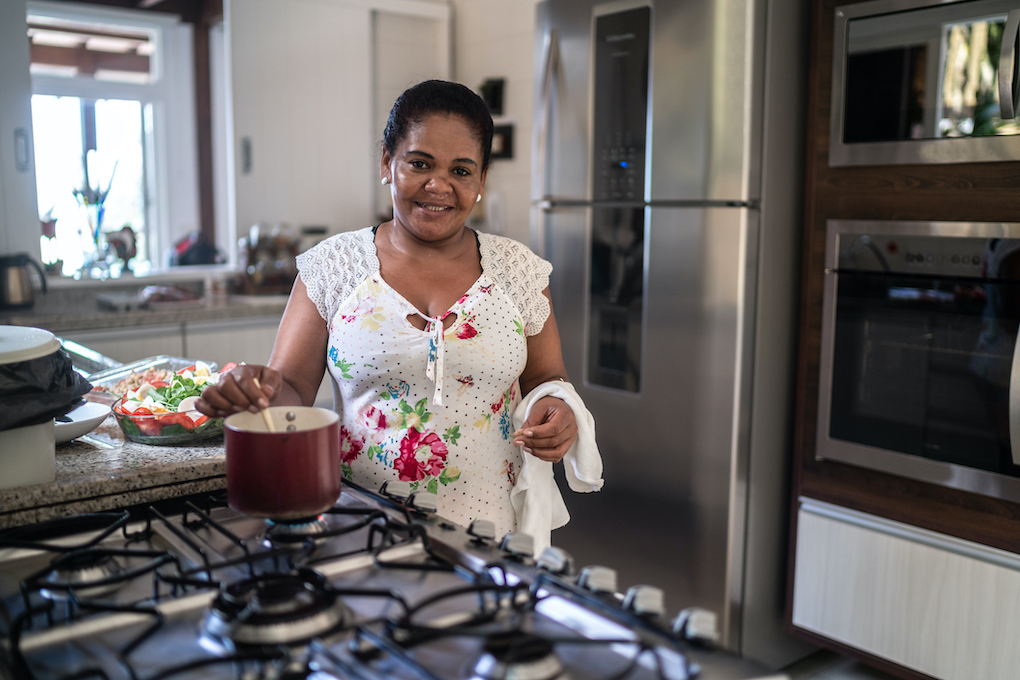In 2021, Angélica Moreira released her book Memórias da Cozinha Ancestral (Memoirs of Ancestral Cuisine). The book aims to reinforce the knowledge and practices passed down from Afro-Brazilian matriarchs in her family to highlight Afro-Ancestral cuisine.
The book is an artistic and heritage project that aims to celebrate ethno-gastronomy, especially relating to Black women chefs in the city of Salvador.
According to Moreira, the memory of Afro-ancestral cuisine is an open field of memories, so broad and dynamic, that childhood stories could not be lacking. Family bonds and memories of support among Black women, “enables a look at the diversity of typical Bahian eating habits, especially traced by Black women in their activist political process.”
Moreira’s work is an example of how community identities related to Afro-Ancestral cuisine is gaining momentum as Afro-Brazilian chefs are fed up with the label exotic food coined by white chefs in restaurants in Brazil. They are Afro-descendants who are creating original cuisine that is popping up in Brazil now, based on their roots.
Located in the neighborhood of Santo Amaro, in the city of Recife, Altar Cozinha Ancestral is famous worldwide for the taste of food prepared with traditional African recipes, as Chef Carmem Virginia usually says.
A Recife native with African roots in Nigeria, she is proud of her ashe (good vibes in Yoruba), food and her history. She says that her relationship with spoons and pans started early.
“My life has always been in the kitchen. My grandmother was a public school lunch cook and my aunts are good cooks,” she points out.
Delicacies inspired by Candomblé religion (an African diaspora religion that developed in Brazil during the 19th century), and celebrating the elements of nature, based on fish, seafood and regional elements such as plantain and biribiri.
The menu has names that are meticulously chosen to embrace Afro-Brazilian creativity and its relations to the deities. In many Altar Cozinha Ancestral dishes, the names of Candomblé gods such as Oyá, Esun, and Obalúwayé are found.
In 2020, Altar Cozinha Ancestral received the El Espíritu de América Latina award as Latin America’s 50 Best Restaurants.
“I never wanted to be a chef or a cook. I was chosen by the orixás (Candomblé deities) at the age of seven,” revealed Carmem Virgínia.
Andressa Cabral, who also owns a restaurant that is inspired by Afro-ancestral cuisine— Meza Bar— said that people are looking for food with more love and stories.
“People want to be in contact with real food, cooked with affection. It is the idea of affective cuisine that has been dominating the market, but now beyond that touch of mother or grandmother, the chefs are bringing the stories behind these dishes, joining gastronomy and history,” Cabral said during a live broadcast on her Instagram page.
Meza Bar is located in Rio de Janeiro, and has a 5-star rating on Trip Advisor’s website.
